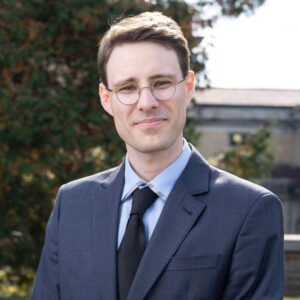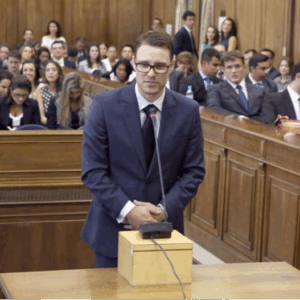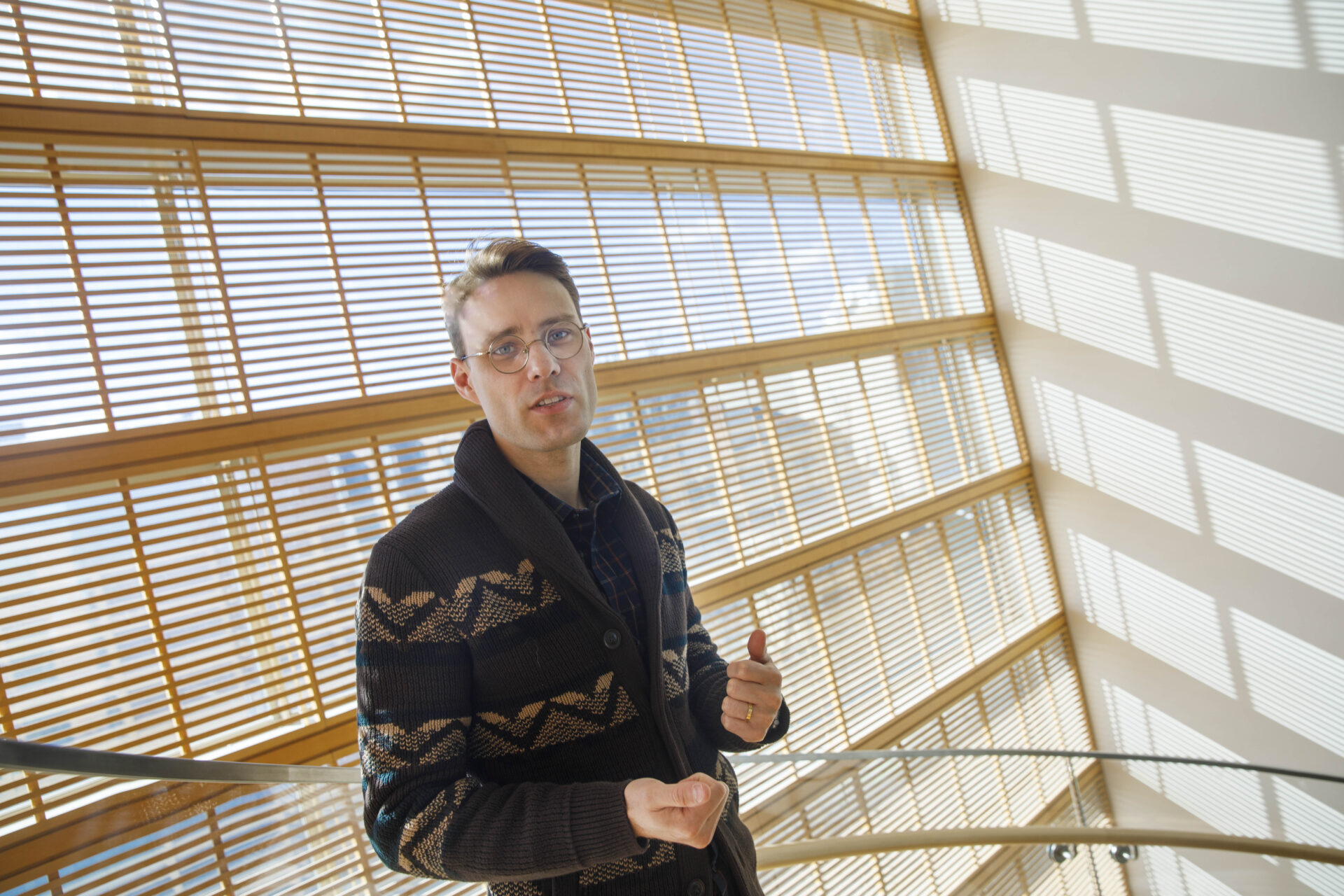
Jean Vilbert landed in Madison, Wisconsin, with a cast on his foot and little English, wondering if freedom was worth everything he had left behind in Brazil: a lifetime judgeship, a professorship, and the stability his parents had sacrificed so much for. His father had sold candy on the streets while his mother cut hair in clients’ homes. Education had been Jean’s way out.
In Madison, Jean was about to risk it all for the sake of freedom, and for a dream that had begun when he was a teenager. His mother would tell her haircut clients about her son’s love of books, dropping not-so-subtle hints in hopes of getting him a few for free. Among those was One L, a memoir of Harvard Law School.
Until then, Jean hadn’t even heard of Harvard. He had to look it up. That book reset his horizons. “When I was in law school in Brazil, my classmates would study a certain amount and think that was enough,” Jean recalls. “But I kept telling myself: no, I won’t use them as my standard.” He knew there was a place where people demanded more of themselves.
That dedication helped him become one of Brazil’s youngest judges. But what made him a successful judge also made him sensitive to what he’d surrendered: the freedom to ask certain questions. When he applied for a professorship, he was called before a committee to defend comments he’d made as a graduate student in a hallway conversation a year earlier. Some students who had overheard him circulated petitions demanding the university rescind his appointment.
His offense was a question about whether Bolsa Família, Brazil’s universal basic income scheme, truly helped people or traded dignity for security. He was accused of defending dictatorship. “I wasn’t attacking the poor,” Jean says. “I was asking, ‘where was the exit door? Where was the empowerment?’”
His criticism came from watching what the system did to human agency. “In Brazil, many say you just get the pie and share it; you don’t have to earn anything.” His parents had taught him the opposite: dignity came from work and agency. That’s why he never understood why officials boasted about adding millions of welfare recipients each year. “Why should people spend their whole lives navigating bureaucracy to get government money instead of building something for themselves?”

As Jean recalled from a survey he conducted, “People would tell me they deserved the government payments because they were truly poor, but their neighbor (who was also receiving money) shouldn’t qualify. The neighbor wasn’t really poor enough.” What struck him was how a system meant to relieve hardship could quietly teach people to define their worth by limitations rather than by possibilities.
The petition against him failed, but he learned his lesson: there were questions you simply couldn’t ask. And that realization crystallized his choice. If he wanted to pursue those questions honestly, he would have to leave Brazil. So when the University of Wisconsin–Madison offered him a fully funded master’s in public affairs, he said yes.
In Wisconsin, Jean studied harder than ever: statistics, econometrics, and calculus. “I would leave the library at 2 a.m. and return at 8,” he says. For the first time, he saw students working even harder than he was. And for the first time, he saw that disagreement wasn’t dangerous; it was expected. Professors told him to challenge assumptions and to follow the data wherever it led.
During the pandemic, Jean found the Institute for Humane Studies through an online workshop for PhD applicants. In that Zoom session, faculty mentor Peter Jaworski heard Jean describe his research interests and his low GRE score. Jaworski’s advice was direct: “Your background is different. Don’t let test scores define you. Show them who you are.”
That encouragement mattered, but so did what followed. IHS funded Jean’s first national survey examining how social programs affect human agency, research that Brazilian universities had discouraged. The project meant navigating IRB protocols, interviewing 2,000 people, and learning mixed methods from scratch. “IHS trusted me before I’d proved myself,” Jean says. “That first survey taught me how to be a quantitative researcher.”
IHS also paid his doctoral application fees. “Maybe I wouldn’t have applied to Harvard,” he admits. “It seemed like such a long shot. But having that support meant I could aim higher.”
Today, Jean is pursuing his doctorate at the Government Department at Harvard, investigating how constitutional design shapes opportunities for human flourishing across Latin America. He is asking, this time with rigorous empirical evidence, whether law can open pathways to empowerment rather than close them.
By supporting IHS, you invest in scholars like Jean at a formative stage in their careers—not only with crucial financial support, but also with inspiration and connections to other like-minded and driven intellectual collaborators that they can’t find anywhere else.
